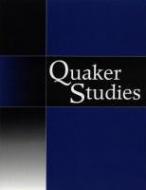
Abstract
The peace testimony of the early Quakers was developed in a context where war, killing and death were a major preoccupation. In this article I show how Margaret Fell and other early Quaker women encouraged a choice of life rather than a preoccupation with death. While both women and men Friends developed the peace testimony, in the case of the men, the language of war (albeit the 'Lamb's War') was retained, while many women (though not all) looked for language that was more nurturing and less violent. I suggest that it is the radical choice of life, not just the renunciation of violence, that is ultimately central to the peace testimony, especially in relation to its emphasis on justice and flourishing.
Recommended Citation
Jantzen, Grace M.
(2005)
"Choose Life! Early Quaker Women and Violence in Modernity,"
Quaker Studies: Vol. 9:
Iss.
2, Article 1.
Available at:
https://digitalcommons.georgefox.edu/quakerstudies/vol9/iss2/1
